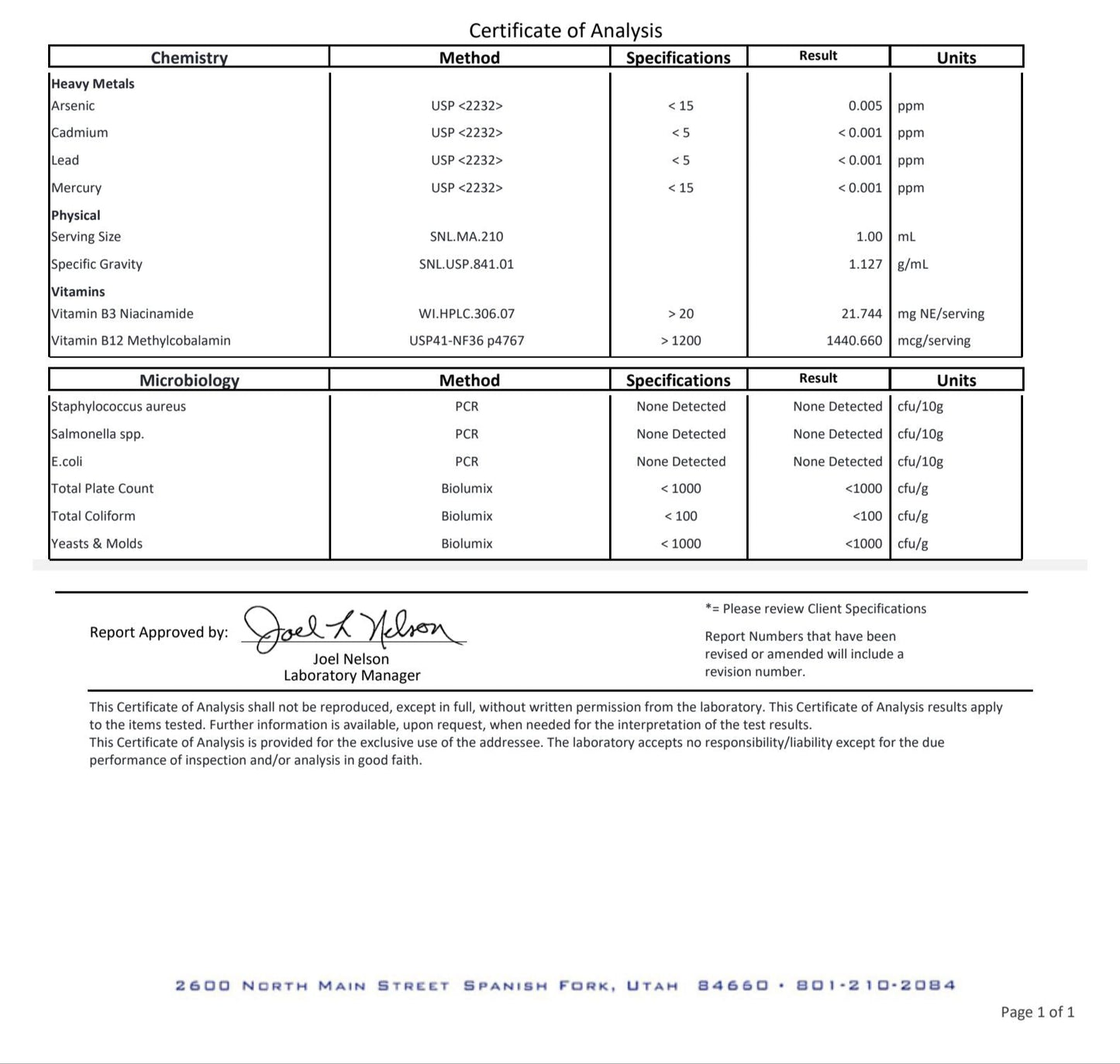Vitamin B-12
May support proper DNA synthesis, folate cycle function, energy production, cognitive function, and immune health (51,53).
Aids as an antioxidant via direct scavenging of reactive oxygen species (inflammation), preserving l-glutathione levels (master antioxidant), and reducing oxidative stress (51).
May support reduced vitamin b-12 deficiency pathologies such as anemia, neurodegenerative disease, cardiovascular disease, and osteoporosis (53).
Vitamin B6
Serves as a cofactor in more than 150 enzymatic reactions associated in blood sugar regulation, immunity, cardiovascular function, neuronal health, metabolic, and digestive health (38, 40).
May support reduced plasma glucose (blood sugar levels) via inhibiting the activity of small-intestinal α-glucosidases (enzymes associated with glucose metabolism) (39).
Functions as an antioxidant by counteracting the formation of reactive oxygen species (inflammatory markers) and advanced glycation end-products (38,40).
May support blood sugar regulation in women with gestational diabetes (40).
Cofactor for enzymes involved in DNA metabolism (40).
Vitamin B5
Major B vitamin that may support cardiovascular health by inhibiting hepatic(liver) triglyceride synthesis, reducing very-low-density lipoprotein (VLDL) secretion, and increasing HDL plasma concentrations (9).
Reduces conversion of VLDL into LDL proteins and serum lipoprotein concentrations in plasma (blood) (9).
Vital for regulation of gene expression, cell cycle progression, and DNA repair, and cell death (9).
Vitamin B2
- May support conversion and activation of other B vitamins, red blood cell production and serves as a cofactor for both glucose and fat metabolism (energy production) (92,93).
Vitamin B3 (Niacin)
Major B vitamin that may support cardiovascular health by inhibiting hepatic(liver) triglyceride synthesis, reducing very-low-density lipoprotein (VLDL) secretion, and increasing HDL plasma concentrations (9).
Reduces conversion of VLDL into LDL proteins and serum lipoprotein concentrations in plasma (blood) (9).
Vital for regulation of gene expression, cell cycle progression, and DNA repair, and cell death (9).
May support healthy inflammatory responses via antioxidant and anti-apoptotic properties (9).
May support reduced prevalence of pellagra, nervous anorexia, and Crohn’s disease (10, 11).













